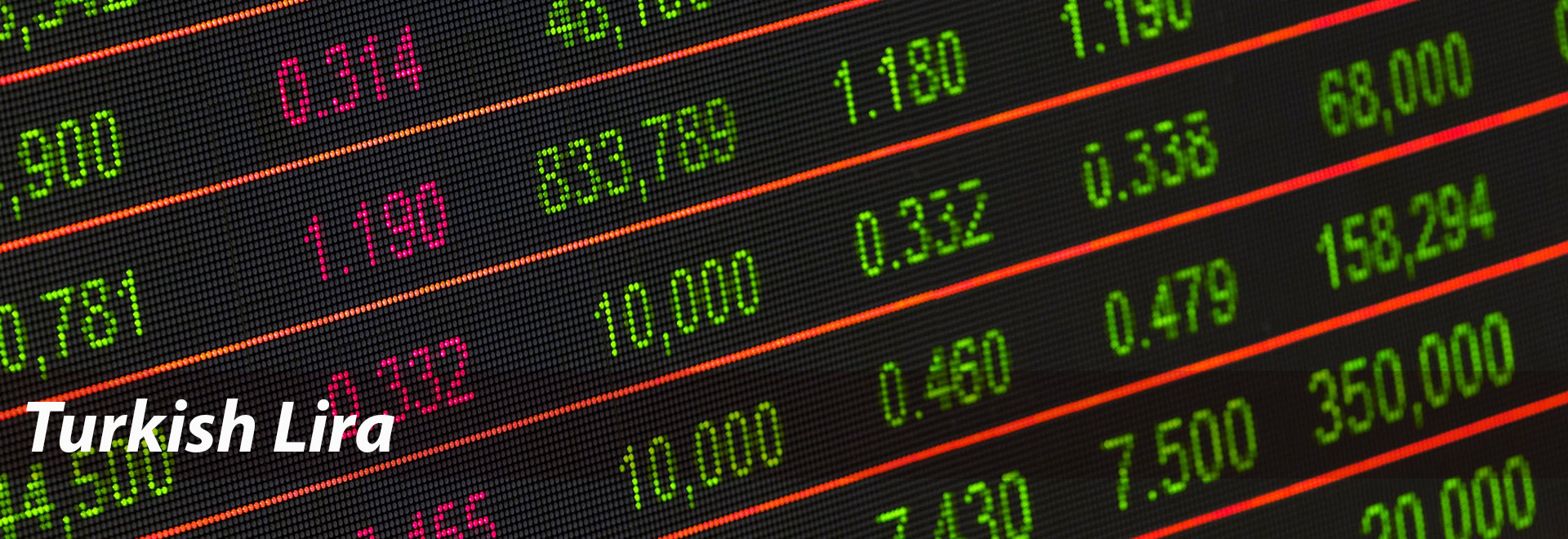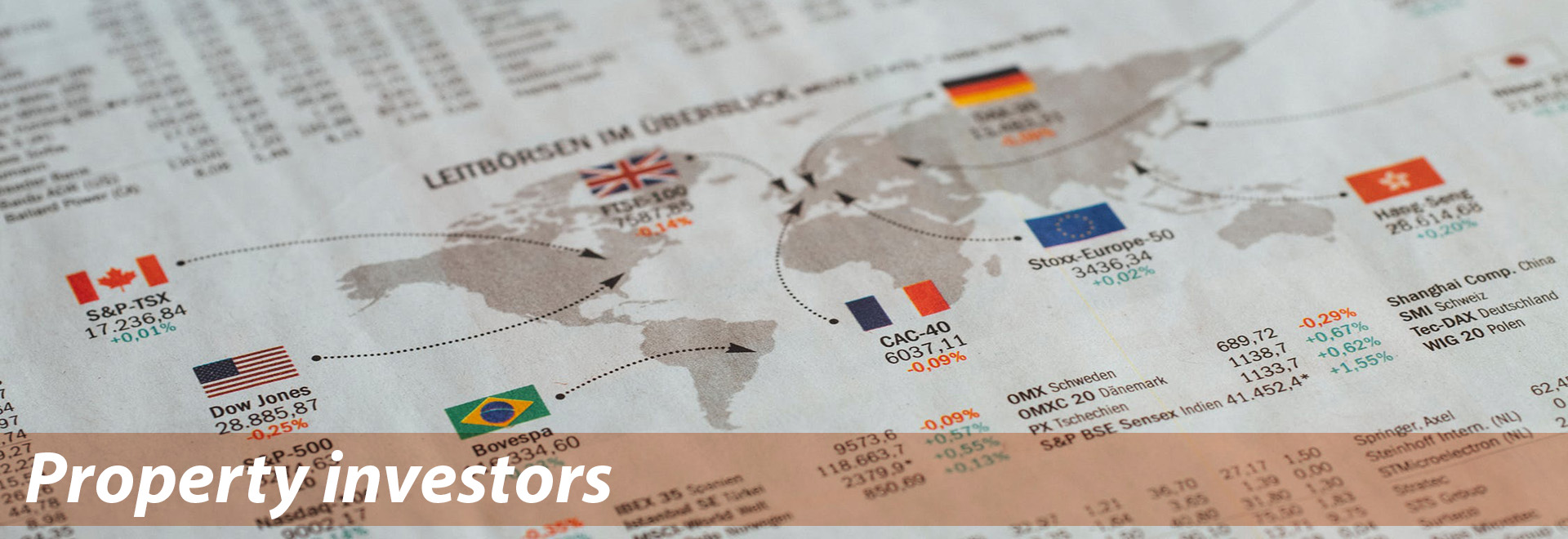
Economic development in Turkey - Corona investment programs - Effects on the Turkish real estate market - We would like to give you an up-to-date overview of the situation in Turkey. It is about the presentation of the economic situation and, against the background of the Corona crisis, current developments in the Turkish real estate market.
Table of Contents - Economic Development - Investment Programs - Turkish Real Estate Market
- Investment Programs - Turkish Economy - Business Support - Real Estate
- Current Economic Situation - Interest Rate Developments - Inflation Expectations Of Turkey's Central Bank
- Current State - Turkish Real Estate Market
- The Turkish Lira - Deveopment and Expectation
- Turkey's Annual Growth Rates - Development Since 1999
- Investors - Investment Strategies And Returns In The Turkish Real Estate Market
- Viewing And Buying Property During The Pandemic - The Current Situation - Travel Restrictions
I. Investment Programs - Turkish Economy - Business Support - Real Estate
Due to the limitation of border entries and exits, local curfews, the closing of shops, restrictions of many services, periodic recession in exports, and the further negative effects of the Corona pandemic, the Turkish economy is under heightened pressure. To compensate for the negative effects, financial assistance packages were launched to support companies as well as remittance payments for retirees, employees, and the unemployed.
- Complete package
A 15 billion USD package to support the Turkish economy was unveiled on March 18. The Loan Guarantee Fund was increased to 7.7 billion USD. The goal is to give companies easier access to loans.
- Short-time work
Companies that have suspended their production due to the corona pandemic or had to partially shut down, can send their employees on short-time work and thus avoid redundancies. Retaining qualified personnel is said to contribute to a faster recovery after the pandemic. In the public sector, employees receive up to a maximum monthly gross amount of 4,380 TL, the salary that corresponds to the last 12-month average. The application is straightforward and is submitted by the employer.
- Direct payments
Unemployed people who currently receive no other state benefits such as unemployment benefit, receive a monthly transfer benefit of 1,000 TL for the period of the crisis to ensure livelihood. This benefit can be applied for via the electronic citizen administration system (e-devlet) and gets approved automatically.
- Other business support measures
- Tax deferrals
Turkey's finance minister announced tax cuts and other measures to stabilize inflation on March 31. After Albayrak's announcement to cut taxes, the stock exchange responded positively. For a limited time, the Turkish government has reduced, among other things, the special consumption tax for a variety of cars. In addition to the VAT of 18%, the special consumption tax is otherwise due when purchasing a new car. Its amount corresponds to the engine size and the vehicle value before taxes.
- Central Bank of Turkey - increase the key interest rate
In the last quarter of 2020, under its new chairman Naci Ağbal, the Turkish central bank raised the key interest rate in several steps to support the Turkish lira. As a result, the Turkish lira gained in value. The last interest-rate hike was confirmed at the meeting on December 25, 2020.
Various other packages have been decided on. The current protection shield covers the majority of the Turkish economy through cost-effective debt insurance from state banks and discounted loans, especially for small and medium-sized companies (up to 25 MTL or up to 125 MTL annual turnover), and additional loans for larger corporations.
Additionally, installment deferrals and a review of loan terms were decided for existing loans from state banks (e.g. Ziraat Bankasi, Halk Bankasi, and Vakifbank).
The above list does not claim to be complete as various other steps have been taken.

II. Current Economic Situation - Interest Rate Developments - Inflation Expectations Of Turkey's Central Bank
Measures taken by the central bank in the past 12 months
The Turkish Central Bank (TCMB) corrected its inflation expectation for the end of 2021 slightly from 10.84% to 10.53% in January 2021. The key interest rate was raised several times to support the Turkish lira, most recently at the meeting on December 25, 2020.
- TCMB from 13.09.2019
16.5%
- TCMB from 10/25/2019
14%
- TCMB from 13.12.2019
12%
- TCMB from January 17th, 2020
11.25%
- TCMB from February 20th, 2020
10.75%
- TCMB from March 18th, 2020
9.75%
- TCMB from April 23, 2020
8.75%
- TCMB from May 22, 2020
8.25%
- TCMB from September 25, 2020
10.25%
- TCMB from November 20, 2020
15%
- TCMB from December 25, 2020
17%
The table (source: TCMB - 1 week central bank money) shows the interest-rate development for one-week credit auctions since September 13, 2019. Among other things, decisive for the investment of overnight money at banks and therefore an important reference for private and institutional investors.
On the inflation side, the Turkish central bank now expects inflation of 10.53% for the end of 2021 and a decrease to 9.24% for the end of 2022 (source: TCMB - BEKLENTİ ANKETİ İSTATİSTİKLERİ).
In its pronouncements, the Turkish government has repeatedly pointed out that in order to contain the corona crisis, the financial markets must function smoothly and the financing of companies must be ensured at all times. The personnel changes in the Ministry of Finance and at the top of the central bank make it possible - if necessary - to intervene quickly to stabilize the Turkish lira. It remains to be seen how the interest rate hikes of the past few weeks will affect the coming months against the backdrop of the ongoing corona pandemic. The central bank expects an exchange rate to the US dollar of TL 8.09 for the end of 2021.
For the summer of 2021, we also expect a slight recovery in tourism in Turkey, which may then lead to higher foreign exchange income compared to 2020 and further support for the Turkish lira.
Overall, a cautiously restrictive course from the central bank is to be expected in 2021. Additional corona-related regulations for domestic banks at advantageous interest rates have already been announced as required.
III. Current State - Turkish Real Estate Market
At the beginning of the year, things looked good for the Turkish real estate market. Despite increasing regulation, significantly more was invested in newly-built apartments last year, and investors anticipated an attractive market environment for 2020. In February 2020 a total of 118,753 properties transferred, this corresponds to an increase of 51.4% compared to February 2019. Also the start in March 2020 was strong until the Corona-related shut down, so that compared to the weak March of the previous year (March 2019) there was still a slight growth.
In the second half of March, the restrictions imposed by Corona then had a greater impact. The lower demand and the very limited possibility for property viewings led to a slump in the Turkish real estate market in April. This concerns rental and sale. The decrease in sales amounts to 50% compared to the comparative period last year.
As of January 2021, there was a 37.9% decrease in property sales compared to the beginning of 2020. Mortgage-financed sales even fell by 74.6% compared to January 2020 to 10,732 properties. This decline is heavily concentrated on properties in the low-price segment that are in demand by residents.
Properties in good locations in tourist areas as well as in attractive districts in Istanbul are not affected by this price dynamic. Here we see price increases, partly contrary to the trend of general weak demand. The background to this is that the majority of owners and property developers are financially better equipped and are reluctant to sell on unfavorable terms. There is speculation on further price increases in the next six to twelve months, especially with a view to a slow weakening of the corona pandemic.

IV. The Turkish Lira - Deveopment and Expectation
The national currency, the lira, lost value against the dollar and euro in 2019, and this trend is expected to continue in 2020. The value of the Turkish Lira against the US dollar was around 12% in December 2019, up to 18% by early May 2020. The central bank's interest rate cuts, according to orthodox economists, result in a loss of purchasing power for the currency. On the other hand, interest rate cuts and cheap loans can favor investment and thus economic growth. It remains to be seen what effects will prevail in the midterm.
After the Ministry of Finance and the Turkish Central Bank was replaced in the fourth quarter of 2020, a more restrictive monetary policy with higher interest rates was established as described above. Due to the effective net return on investments in the Turkish lira, bond purchases by foreign investors have increased significantly. As a result, the Turkish lira gained around 12% in value against the euro for the first time in several years over a continuous period of more than two months (as of February 19, 2021).
Resilience of the Turkish economy
Turkey has weathered a number of crises over the past two decades. The economic downturn caused by the dot-com bubble in 1999/2000 and the financial crisis in 2008 is examples. The ensuing euro debt crisis had again a negative impact due to the close ties with many EU countries and forced rapid adjustments. The ongoing stress tests have contributed to the resilience of the Turkish economy.
Rapid recovery after crises
A look back at the growth values in times of crisis shows that the Turkish economy generally recovers within two years after exogenous shocks. The economic downturn in 2001 after the dot-com bubble was - 5.96%. Already in 2002, the country returned to the growth path with 6.43%. Comparable to this, the year after the financial crisis in 2009 led to a recession of - 4.7% with a growth of 8.49% the following year.
V. Turkey's Annual Growth Rates - Development Since 1999
- 1999
- 3,39 %
- 2000
6,64 %
- 2001
- 5,96 %
- 2002
6,43 %
- 2003
5,61 %
- 2004
9,64 %
- 2005
9,01 %
- 2006
7,11 %
- 2007
5,03 %
- 2008
0,85 %
- 2009
- 4,7 %
- 2010
8,49 %
- 2011
11,11 %
- 2012
4,79 %
- 2013
8,49 %
- 2014
5,17 %
- 2015
6,09 %
- 2016
3,48 %
- 2017
7,47 %
- 2018
2,83 %
- 2019
0,9 %
- 2020
0,5 % [2]
[1] Data based on World Bank statistics (GDP Growth Turkey - annual and in % ).
[2] Preliminary estimate.
The effects of the Corona crisis are not yet foreseeable. Market operators are counting on an economic recovery in the short term. Possible scenarios include a deep V or U development. The V scenario means a steep downward trend, which then spikes up again quickly after reaching a low point whereas the V scenario means a low level lasts longer until the economy picks up again.
Strongly positioned in many areas
The comparatively low level of public debt is often cited as an advantage of the country. This means a corresponding fiscal scope to support the economy and return to growth in the post-Corona period. In contrast, debt in the private sector is seen as problematic. In the past, companies have often taken out loans in Euro and US Dollar. A weak national currency further increases the interest burden on liabilities quoted in foreign currency.
Despite all the upheavals in day-to-day politics, Turkey is and remains strongly connected to Europe. There is a close economic connection that allows a positive outlook in the medium and long term. The majority of the Turkish population pays close attention to other industrialized countries as a benchmark for the quality of public services, economic conditions, infrastructure, offers in the medical and cultural sector, and much more. Subsequently, certain foreign standards are sooner or later expected in the country, leading to constant pressure to change and adapt.
Another advantage is a large number of well-educated people as well as immigration from neighboring countries. The relatively young population is developing a high level of domestic consumption. It is often unknown that in recent years the country has built up its own industry and now has a whole range of companies in mechanical engineering, automotive industry, and other areas. For example, there are global supply chain production sites for Ford, Hyundai, or Honda with automotive companies and international subsidiaries in Turkey.
Turkey as a bridge thanks to its geopolitically advantageous location
Due to its location in Asia Minor and with its north-western provinces in Europe, the country acts as a natural bridge between the Middle East and Europe. Bordering Bulgaria and Greece, it touches the eastern border of the European Union. This unique location favors trade, travel, and cultural exchange, along with economic advantages. Surrounded by three seas and the strategically important access to the Black Sea via the Bosporus, Turkey plays an important role in this part of the world.

VI. Investors - Investment Strategies And Returns In The Turkish Real Estate Market
Prices in the Turkish real estate market are particularly dependent on demand. The background is a strong construction sector which provides many jobs. This leads to a comparatively stable supply and thus fluctuations in demand constitute a considerable influence on price levels. Changes in real estate prices usually come with a delay of a few months. Turkey offers a well-functioning, dynamic real estate market, so that price adjustments can sometimes occur within a few weeks, since volume-related foreign demand means only minor price effects. Because of the currently low domestic demand, the prices of Turkish real estate are under pressure.
Additionally, the current exchange rate of the Turkish Lira is a favorable factor for foreign buyers. However, the development of the Turkish Lira is not reflected one-to-one in the prices for condominiums and houses. One of the reasons is that resources associated with important preliminary construction works, involving e.g. power supply or steel, are either bought on the world market in US dollar (steel) or traded in US dollar (energy). In contrast, reductions in labor costs have a direct impact on the price of real estate in Euro or US dollar.
Unlike the automotive industry, the Turkish real estate market currently is in a phase of extremely high demand when the Corona crisis emerged. Against this background, there are currently considerable investment opportunities in the Turkish real estate market.
Determining the Return on Investment (ROI) on real estate
The ROI is understood by investors as the return on cash or property, plant, and equipment, or other (financial) investment which is achieved within a year. It is an important indicator for measuring the success of an investment. Annual income and expenditure are compared with one another for the return on e.g. rental or investment properties. In order to calculate the net return, all additional costs, such as maintenance, taxes, and duties, must be taken into account.
Rental income
The rent should correspond to the attractiveness and equipment of the property and its location. Comparative rents are most commonly used to determine market rent. Rental income is the first pillar of a property's return. The Corona crisis and the currently difficult economic situation are leading to rents rising less than expected in relation to inflation.
Increase in value
The increase in the value of a property means that the price of a home or condominium gains value over time. The property is then worth more than at the time of the purchase. Due to the low-interest rates for real estate loans in Turkey and the current price level, the greatest return opportunities for real estate investments have to be considered before the background that a rapid increase in value is anticipated for the coming years.
Exit strategy
Depending on the purpose of the purchase, the correct time of the resale is most important for the total return. If the investment purpose is in the foreground, the capital should not be required at short notice, so that the resale can be conducted at a favorable time to wait out short-term price fluctuations. The margin left should ideally be two to five years. Experience has shown that this leads to the highest return in the leading property markets in Turkey.
ROI averages in Turkish property markets
- Rental
3 to 5%
- Value increases
5 to 12%
For the purpose of illustration: an annual rental return of 3 to 5% and an annual value increase of 5 to 12% per year can be realized in Istanbul for example. The increase in value is more significant in the overall ROI calculation and can in some cases even overcompensate for negative effects from renting out the property. Apart from choosing the right property, the investor's ability to wait for the opportune time to sell is of utmost importance. In summary, not depending on capital invested in property in the short term is the key to maximize ROI.
Price level justifies purchase recommendation
To put it bluntly, the current phase in the Turkish property market is more attractive than ever. Even if, from a conservative perspective, it is assumed that the Turkish Lira's depreciation against the US dollar of around 42% in 2019 had only a 33% effect (due to the above-outlined nature of construction costs) on the prices of real estate, this means that Mediterranean living space on average is around 13.86% cheaper than it would be otherwise. Contrary to this trend, individual projects (e.g. at or close to completion) and locations show price increases in the same time frame. Premium constructors will sit out the crisis and refrain from selling at reduced prices. The advantage here is that even in times of low demand Turkish properties prove their investment value.
It should be noted that the Turkish infrastructure, particularly in the conurbations of Antalya, Alanya, Bursa, Istanbul, and many other regions, can certainly keep up with the holiday hot spots in Italy or Spain and even surpasses them in some areas (see medical care). However, as this knowledge is not yet widespread in international markets, Turkey is still a bargain when it comes to property prices located near the sea with a mild climate and good infrastructure.

VII. Viewing And Buying Property During The Pandemic - The Current Situation - Travel Restrictions
Principle
We always highly recommend extensive on-site visits where we can answer all your questions, before every purchase decision or e.g. a deposit for new construction projects. In every crisis, however, you have to react flexibly in order to be able to meet customer requests. To be there for you with all our services in Corona times, the Timondro network now offers virtual tours for many regions and property locations in Turkey. Especially in the current correction phase on the Turkish real estate market, some customers want to take advantage of opportunities to buy and not wait for the travel restrictions to be lifted.
Pre-selection on the internet
As usual, we guarantee customers our careful pre-selection (services) with the highest standards at our locations in Turkey, to provide a wide range of properties at market prices. The Timondro network is constantly scanning the market and negotiating the best deals for our customers for newly built constructions as well as for used properties in top condition. This saves buyers time and enables them to find a beautiful property in a manageable time frame that also corresponds to their wishes and budget.
We help to avoid unnecessary and fruitless discussions and advise potential buyers on the best local offers and market prices. By an open communication that addresses the pros and cons of current market offers, we create a pleasant atmosphere to enable customers to negotiate prices and conditions on an equal footing. After a thorough examination of the preferences and clarification of questions from interested parties, experience has shown that we are able to make or recommend a specific selection that fits the interests of our customers for a comprehensive viewing tour.
Virtual sightseeing tours
Based on the pre-selection, you can arrange an appointment for a virtual tour with your property consultant. We ask you to take two to three hours depending on the number of properties to be viewed on the day in question. Using Skype, Facetime, WhatsApp, Zoom or other video call applications, we take you on your personalized viewing tour in e.g. Istanbul, Antalya, Belek, Kemer, Trabzon, or Alanya.
We are happy to answer any questions you may have upfront and set up your viewing tour - contact us today!
 AR
AR DE
DE RU
RU TR
TR